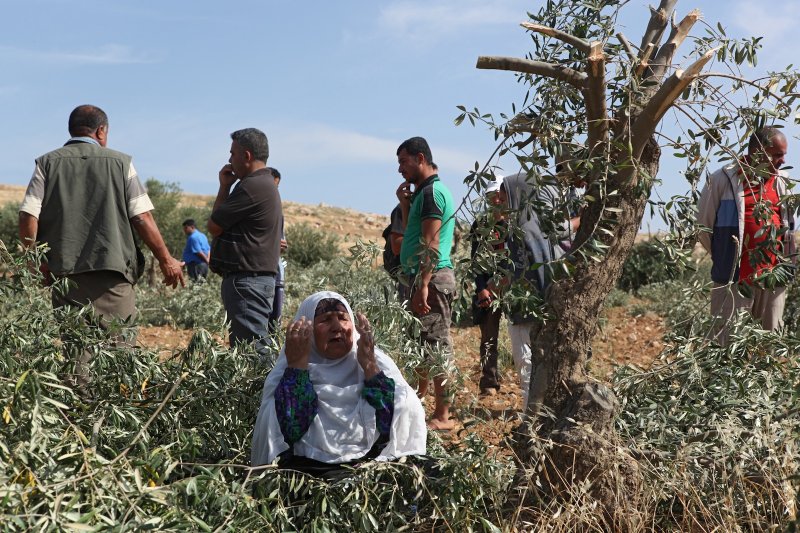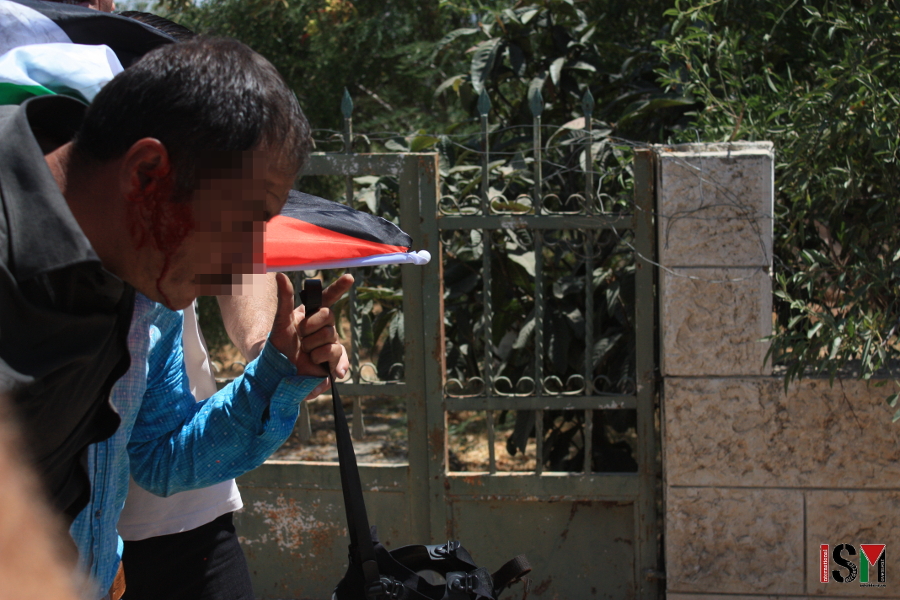Category: Features
-
Call to action: Olive Harvest 2017
10th July 2017 | International Solidarity Movement | Ramallah, occupied Palestine At a time of regular settler violence in the West Bank, the International Solidarity Movement (ISM) is issuing an urgent call for volunteers to join us for the 2017 Olive Harvest Campaign at the invitation of Palestinian communities. The olive tree is a national symbol for…
-
Israeli forces shoot teargas and rubber coated steel bullets at the 6th anniversary demonstration of Kafr Qaddum
9th July 2017 | International Solidarity Movement, Al-Khalil team | Hebron, occupied Palestine On Friday 7th of July the residents of Kafr Qaddum gathered for their weekly demonstration marking its 6th anniversary, which was repressed by the Israeli forces shooting teargas, stun grenades and rubber-coated steel bullets at demonstrators. Israeli forces approached the demonstrators in…
-
Apartheid illustrated: Israeli soldier shoots another soldier in Hebron
6th July 2017 | International Solidarity Movement, al-Khalil team | Hebron, occupied Palestine On Tuesday, 4th July 2017, Israeli forces were conducting a ‘military training’ in a civilian Palestinian neighborhood near Gilbert checkpoint in Tel Rumeida in occupied al-Khalil (Hebron). The result of this ‘military training’ was a fatal shot by one Israeli soldier to…



